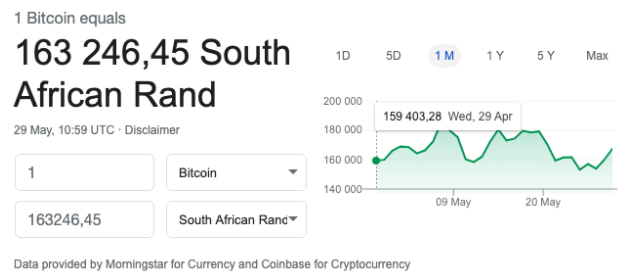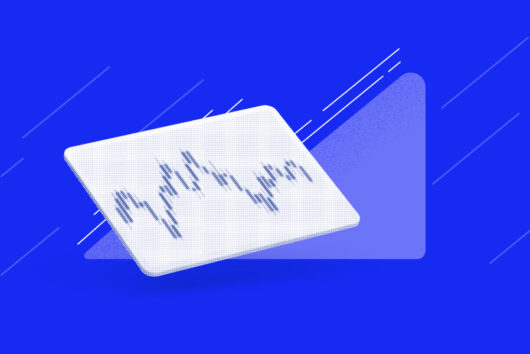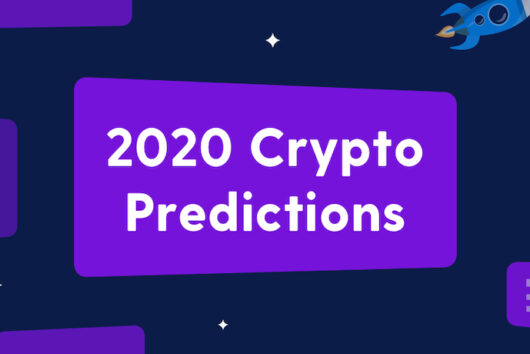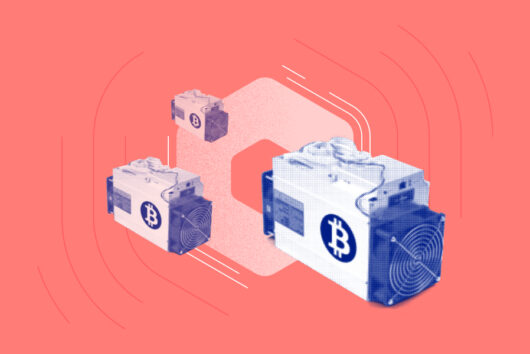Why the crypto price differs around the world

If you search for the price of Bitcoin or any other cryptocurrency – whether on a search engine such as Google or across one of the many different exchanges such as Luno – you’ll notice the price differs from platform to platform.
This is because there’s no standard or global Bitcoin price. Unlike most local currencies, Bitcoin isn’t pegged to anything to give it value such as a currency or an asset. It’s worth what people are willing to pay for it, and people using different platforms are usually willing to pay different amounts.
It’s like asking: “Why does a bag of rice cost more in one supermarket, city or country compared to another?” It’s all down to supply and demand. Without a currency peg, the price of Bitcoin shifts depending on how many people want to buy and sell them, at what price, and in what quantity.
Let’s dive in a little deeper for a more detailed look.
Average price estimates
If there’s no global standard for the price of Bitcoin, how can you be sure that Google, a digital currency exchange or another price tracker is accurate? In short, you can’t be sure. In fact, most Bitcoin price trackers calculate an average estimate or recently-traded Bitcoin price based on the transaction history of prominent exchanges. For example, Google uses the Coinbase API to calculate its price, which also explains why its value is linked to the US Dollar.
There are also exchange rates to consider. Customers from our countries of operation sometimes search for the price of Bitcoin in their home currency: South African Rand (ZAR) or Nigerian naira (NGN), for example. If you search for “1 BTC to ZAR”, for instance, Google shows you the estimated exchange rate of 1 BTC in US Dollars, as indicated on Coinbase at that moment, with the US Dollar amount converted into ZAR. Even if you had US Dollars in a Coinbase account, the price you’d pay would be different to the one shown on Google, due to fees and other variables.

Not every platform through which you can buy and sell Bitcoin with the South African Rand will trade at the same exchange rate. Therefore, the prices you see on Luno are unique because the supply and demand — set by buyers and sellers — is also unique and will differ to what you’ll find on other exchanges or on Google.
? To be clear: Luno does not set the price of Bitcoin. We provide a platform for people to buy and sell cryptocurrencies.
On supply and demand
Exchanges are places where people who have Bitcoin can sell to those who want it.
If you have two exchanges — Exchange A and Exchange B — that both support USD and BTC, the price on each will be whatever supply and demand dictates.
If more people are selling than they are buying, the price will drop. The same goes for more people buying than selling.
Different exchanges may also display different prices because they have different levels of liquidity. Again, this is linked to supply and demand.
Arbitrage
So, if Bitcoin trades at different prices on different exchanges, is there money to be made?
If I can sell 1 BTC for 171,398 ZAR on Luno, but 1 BTC only costs 163,246 ZAR, do I make an instant 8,152 ZAR profit? Unfortunately not.
Common in Bitcoin and other markets, this process is known as arbitrage.
If you have identical items — say avocados or Bitcoin — and they fetch a higher price in one place than another; people will buy at the same time, to profit from the difference.
It seems simple: just buy all the avocados (or Bitcoin) in the supermarket, city or country where they are cheap. Then sell them where they are expensive. Soon, the novice trader will realise that it is a little trickier than expected.
In the same way that it isn’t free to send avocados from one place to another, it’s not “free” to transfer currencies between countries and platforms.
That doesn’t mean that it doesn’t occur. It just doesn’t happen everywhere, all the time.
But we’ve also seen the opposite happen: Bitcoin trading for less than it does on international exchanges – it really all depends on the market conditions.
 Discover
Discover Help Centre
Help Centre Status
Status Company
Company Careers
Careers Press
Press


